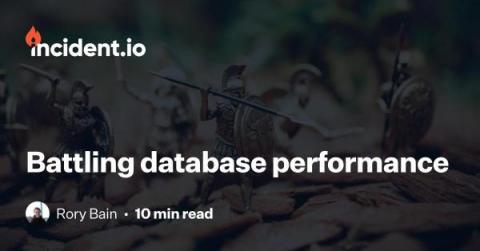Learning from incidents is not the goal
Learning from incidents has become something of a hot topic within the software industry, and for good reason. Analyzing mistakes and mishaps can help organizations avoid similar issues in the future, leading to improved operations and increased safety. But too often we treat learning from incidents as the end goal, rather than a means to achieving greater business success. The goal is not for our organisations to learn from incidents: it’s for them to be better, more successful businesses.











